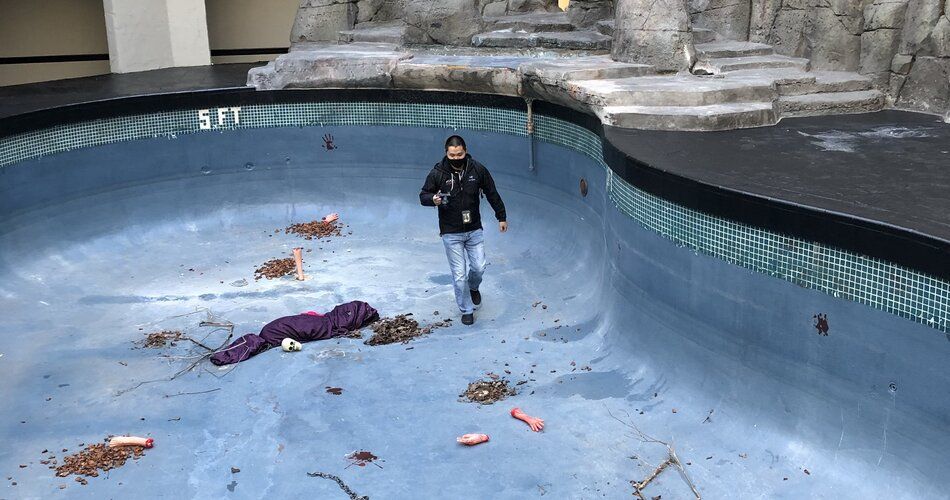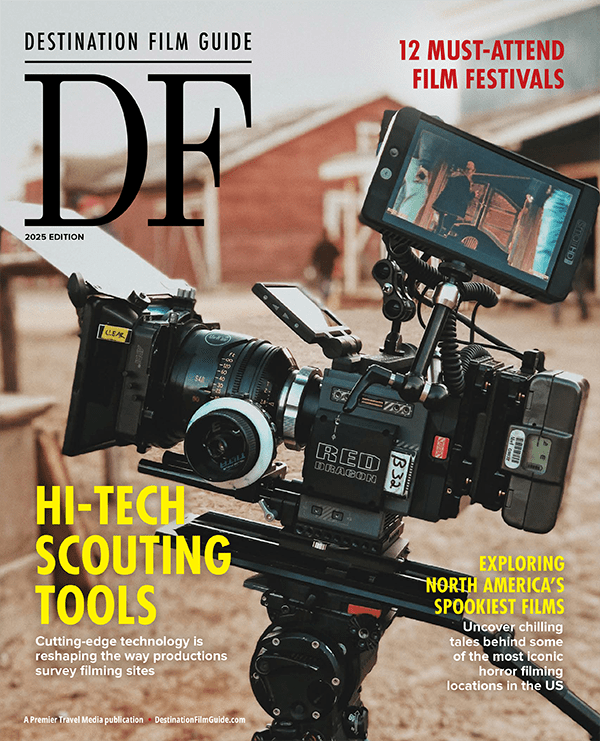Evan Chan embraces both the creative and the practical in his location scout role
Even before Evan Chan finished his film studies at Capilano University (formerly Capilano College), he was already working in the film industry. Not surprising for someone who had spent his high school summers attending film camp. Or, in other words, Chan has been interested in a career in the film since he was very young. After completing his studies in 2005, Chan started working as a production assistant. In 2009, he started training as a location scout, realizing early on, it was the perfect role for him. After a few years of dedication and working with experienced location managers willing to show him the ropes, it became his main position in 2014. Since then, Chan, who is based in Vancouver, British Columbia, has crafted an impressive career as a location scout. Additionally, he is a member of the Directors Guild of Canada and the Location Managers Guild International. Here’s what else Chan has to say about being a location scout.
Do you have a specialty?
I’m very knowledgeable on filming locations in and around the Lower Mainland [of British Columbia].
What are a few of the favorite projects you’ve worked on? And why?
I would have to say being able to scout on Wayward Pines, Fear the Walking Dead, Legion, Supernatural and Superman & Lois would be some of the highlights as they are all the types of shows I enjoy watching. Superman & Lois is definitely near the top as it’s based on such iconic characters everyone grew up with.
How did you become good at your job?
I’ve had the opportunity to work with a lot of good location managers who are very team oriented, organized and have a good eye for locations. Being able to work with them and seeing how they manage and lead their teams has given me a standard to work towards and a lot of insight on what to look for in a location.
What are the factors you consider when scouting a location?
The first two questions I ask is whether or not the location meets the creative needs, and whether or not it’s practical to film there. You can have the best-looking location, but if it’s not easily accessible or there’s construction, noise or other concerns nearby, it may limit a production’s ability to use it; especially in television where you’re on a tight deadline.
I also check to see if the homeowners, property managers, etc., are film-friendly. Having a film crew go through your property is not something for everyone, so I try to make sure it’s something that is welcomed by whoever is in charge.
Another crucial step is to ensure the city will allow filming at the location. Sometimes certain areas are off limits to filming for a variety of reasons.
What are some of the most important lessons you’ve learned?
Teamwork is the key to scouting. Work with the location scouts on your shows instead of competing with them. On Superman & Lois, one of the highlights has been able to work with my partner, Adam Hogarth, as we communicate often and work really well together to accomplish the goals of each episode.
How has your profession changed since you started?
There’s been a lot more Zoom meetings after 2020. But other than that technology hasn’t changed too much. I came in sometime after the job of a location scout became digital, and printing photos was not really necessary anymore.
In terms of the Lower Mainland, lots of places have come and gone, and lots of buildings have been constructed over the years.

The legendary Agrodome in Vancouver has been used in many films, including Rocky IV, Deadpool and Highlander.
How has updated technology and the transition from film to digital affected the locations you scout of how they appear onscreen?
Technology changing hasn’t affected how locations are scouted or how often they appear.
How has the streaming model for content changed how you approach the creative process?
From a scouting perspective, the streaming model doesn’t affect our creative decisions. Our primary focus is the script and what the needs are.
How do tax incentives influence how you scout locations?
Depending on the production and their budget, we may be asked to scout in certain areas. Some shows have smaller budgets, and they prefer to film in areas they can get tax incentives. There have been shows I’ve worked on where they only wanted to film in out-of-the-zone areas in order for the production to obtain the incentives.
What are you most excited about regarding the future of location scouting?
I’d welcome the opportunity to work outside of the Lower Mainland if the circumstances were right, and I’m looking forward to seeing the different places that become film-friendly in the future as more people recognize the economic benefits a film production brings to the community.
What keeps you up at night?
As I enjoy the creative process of filmmaking, I often have my best ideas at night and will often stay up late. I’m working on shooting a film in the near future so that has kept me focused and busy.
Top photo: Evan Chan scouting a location
For more information about Evan Chan and his location scout work, visit here.
Download the latest issue of Destination Film here.


